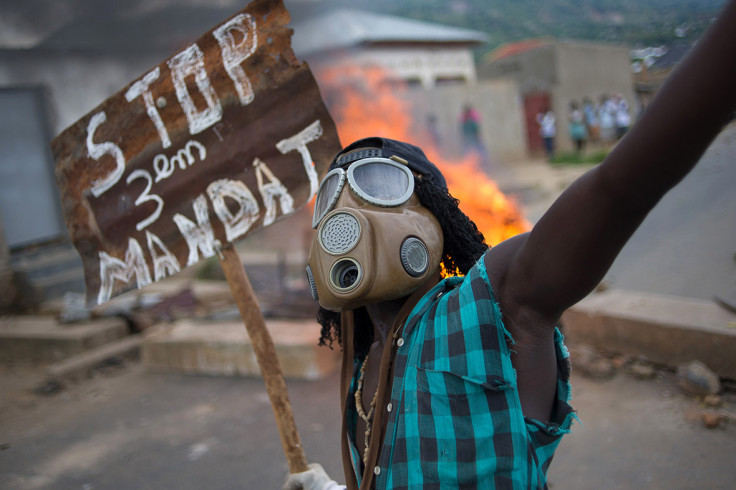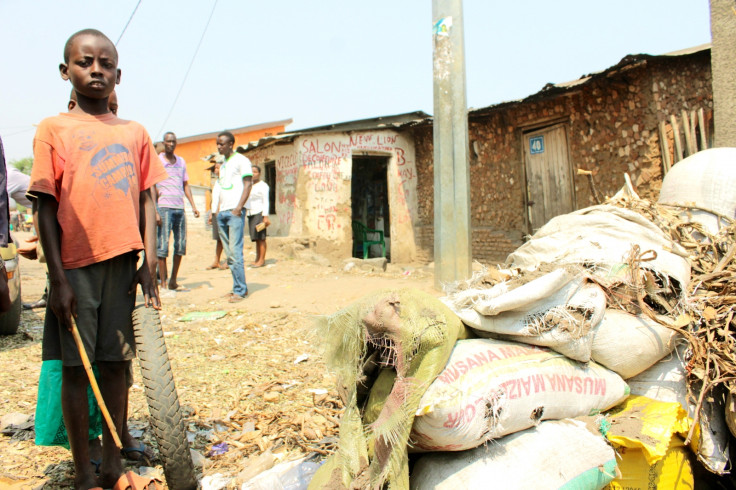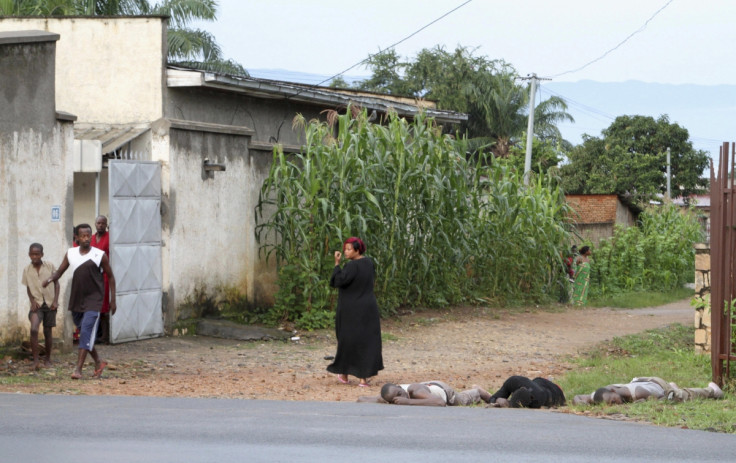Burundi crisis one year on: As many as 1,500 dead as international community shuts its eyes

It was exactly one year ago to the day. On 26 April 2015, hundreds of Burundians descended upon the streets of the capital, Bujumbura, to protest against the announcement by the ruling CNDD-FDD party that incumbent president Pierre Nkurunziza would be their candidate for the forthcoming presidential elections.
Tragically, 26 April 2015 was also the day 15-year-old Jean Nepomuscène (known as Jean-Nepo) Komezamahoro, who, while returning from church, was shot in the head at point blank range by a police officer, for he raised his arms in the air between two so-called dissenting districts of Ngagara et Mutakura. He was the first victim of the conflict.
26 April 2016 was considered the day that Burundi began to sink into a social, economic and political crisis, marred by violent government repression that the International Federation for Human Rights (FIDH) claims may have cost the lives of as many as 1,500 people.
The Fidh's Africa Desk Director, Florent Geel, told IBTimes UK that around 700 people have been confirmed dead, while hundreds are still unaccounted for.
"Our official estimates are of 700 dead, and between 600 and 800 forced disappearances - for some, we have no way of knowing whether they are still detained or have already been executed. The traceability of these missing people is difficult to assure," Geel said over the phone. "With 700 people killed, plus up to 800 disappeared, these figures are more than worrying."
A long descent into the unspeakable
Describing the past year as a "long descent into the unspeakable", Geel explained how 12 months of radicalisation of all parties involved in the conflict has led to such a ghastly crisis.
First, he says, it is important to understand the political dynamics at play in Burundi. The pro-Hutu CNDD-FDD party's confiscation of power forms part of a political belief that it must take revenge on history and hold on to the power that was confiscated by pro-Tutsi parties for 40 years - at any cost.
The breaking point of the government's strategy came on 13 May, when a top Burundian general announced the overthrow of the president in a failed coup. The government's worst fears were confirmed, that pro-Tutsi, former Burundian forces wanted to take over power.
"The problem with the polarity of Burundi's political life is that the government is using combined means of the state, that are prepared for a "final confrontation": it has extremely efficient law enforcement agencies that have shown their impact in violent events for a year now", he explains.
After an attack is attributed to one of the radical armed groups operating in the country, the government typically replicates; FIDH alleged those agencies secretly round up and summarily execute anyone they fear could be opposition. A number of events - occurring in July, November, December and February - are tragic examples of these policies. "After (armed groups attacked military bases in Bujumbura) on 11 December, we found that no less than 150 people had been executed," Geel says.

2016: Shift in repression pattern
In January, however, the publication of compelling satellite images, video footage and witness accounts analysed by Amnesty International indicating that dozens of people killed by Burundian security forces in December were later buried in mass graves marked a shift in the government's repression.
"Because of the international pressure, they changed their oppressive practices to go under the radar, whilst continuing to arrest people. In February, for instance, we confirmed that between 150 and 200 people are arrested, weekly."
While a number of the detainees are taken to known detention centres - such as the Service National de Renseignement (SNR, also know as La Documentation), whereby prisoners are monitored by the International Committee of the Red Cross (ICRC) and the United Nations (UN), others are also sent to a parallel system of private prisons - principally cells based in the capital - where detainees who have left or escaped speak of forceful interrogations, barbaric torture and, at times, executions.
According to the FIDH's latest investigative mission in Burundi, mass graves that would have previously contained up to 40 bodies today only hold three or four. "People who are executed today are buried in smaller tombs, to evade detection from satellites," Geel confirms.
The increasingly active suppletive role of the ruling party youth league - known as Imbonerakure - in the repression has led the FIDH to warn against "a profound genocidal dynamic". "We know that the Imbonerakure accompany police in the streets of Bujumbura, we see them at checkpoints, barricades, during round ups, arrests and unreasonable searches in neighbourhoods. They themselves commit exactions against a number of people designated as Tutsi," Geel says.
While the director acknowledges having to be "careful about manipulation of informants from both sides", he confirms the federation is "taking all this information extremely seriously" and that the "situation really worries us".
"Since 1994 in Rwanda (when an estimated 800,000 Rwandans were killed in the space of 100 days) it is the first time we, at FIDH, pronounce the word 'genocide'," he adds.
International community must take its responsibilities
Today, the country continues to live in fear - and the international community needs to realise how serious the situation really is, insists Geel. "We know it has other fish to fry - in other countries across Africa, or in Syria - and as long as there are no mass massacres in Burundi, we are scared the international community's attention may not be drawn."
A major issue, Geel says, is that the UN insists the issue must be resolved by the African Union (AU). "How can AU heads of state - some of which have clung to power for 20, 30 or nearly 40 years - impose on Nkurunziza to step down?" Geel says, referring, for instance, to the union's president, Chad's leader Idriss Deby, who has be re-elected this month and in turn extended his 26-year rule.
Secondly, Geel says he fears the UN Security Council's unwillingness to impose measures on the Burundian government - such as the sending of a police or peacekeeping force - could mean "it will not react until it is too late".
In January, it emerged the UN would not be adequately prepared to act should the worst scenario of violence - genocide - occur in Burundi.
While the crisis in Burundi can only be resolved through a real political dialogue, the international community must push the government to return to the negotiations table for open, frank and credible discussions. Referring to planned political discussions running between 2-5 May, Geel says the lack of real pressure on Nkurunziza and his entourage means the government may only be heading to the table "to gain time".
"This is the typical case of a conflict we know is coming, and about which nothing is done. It would cost the UN less in human lives and financially to send 200 or 300 police officers now, rather than sending 10,000 blue helmets tomorrow to stabilise a catastrophic conflict."

© Copyright IBTimes 2025. All rights reserved.






















